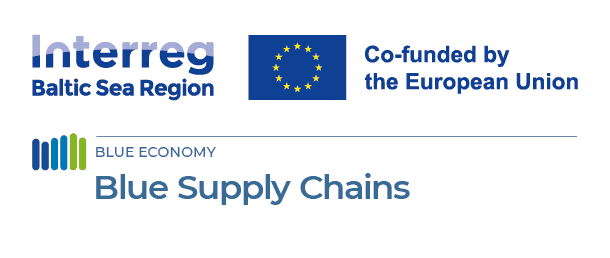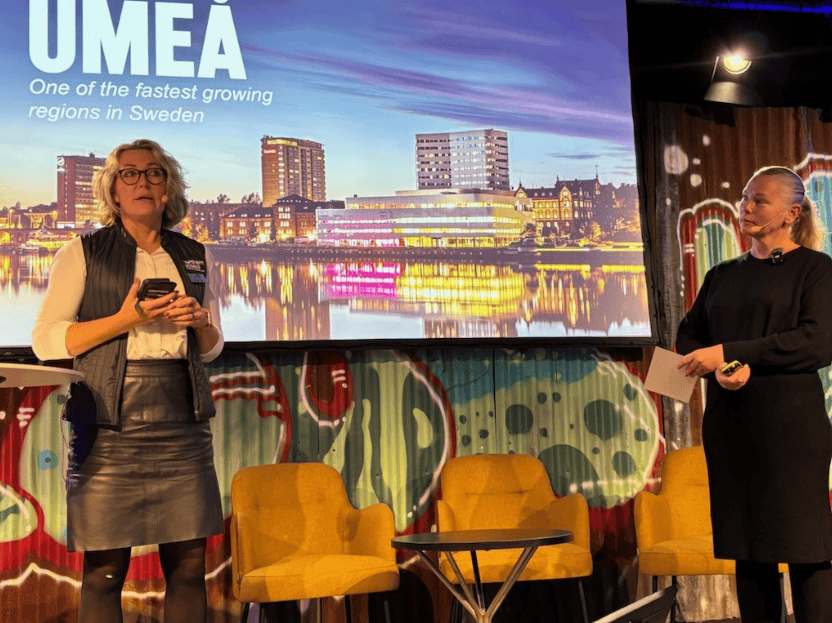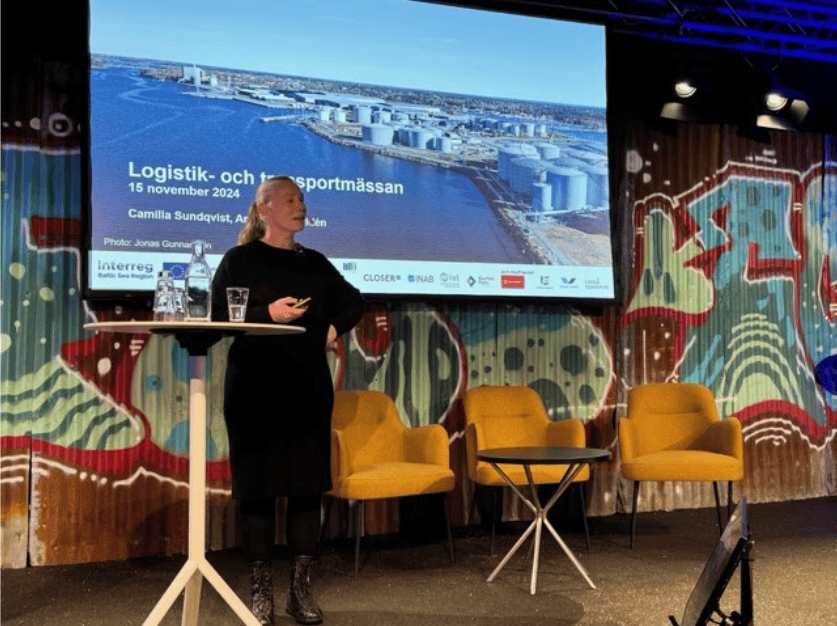
Blue Supply Chains presented during the Logistik and Transport Exhibition in Sweden
15 November 2024
High-quality transport and logistics are vitally important contributors to the prosperity of modern economies. But every day the challenges seem to get bigger. The world is changing rapidly so the solutions that work today won’t necessarily work tomorrow.
Within the International Maritime Organization (IMO) and the EU, there are currently long-term goals for phasing out fossil fuels in the maritime sector, with regulations either already in place or under development. Questions about which new fuels will be viable, where and how they will be produced, and in which sectors and vessel types they will be used are of great interest not only to the maritime industry but also to society at large. These issues are being studied within the Interreg project Blue Supply Chains, where IVL Swedish Environmental Institute, Closer/Lindholmen Science Park, and Umeå Energi, along with Umeå Port, INAB, Kvarken Ports, and Umeå Municipality, have developed a Swedish national strategy for ship charging and bunkering.
The results indicate that multiple fuels and solutions will be available in the future, complementing each other, with the most suitable fuel depending on various parameters such as vessel type, segment, size, shipping routes, and locally available fuels. The development is expected to shift from centralized to more localized production and bunkering, with cooperation and competition between maritime and land-based industries. Very large investments will be required, which must be shared between commercial actors and society. Policies, regulations, and support systems are necessary to promote the development of renewable fuels. Stricter regulations are expected to increase demand for renewable fuels while simultaneously reducing production costs. Collaboration among many stakeholders is essential to drive the need for rapid development. Long-term commitment is required to share risks and costs.
The conference “Logistik & Transport” (Swedish: Logistik & Transportmässan) in one of the largest conferences in the Northern Europe in this sector. Stakeholders in the transport and logistic sector are often returning guests, in the talks or as a visitor. However, the maritime sector has not been particularly involved and participating in the talks on stage. Project partners Closer Lindholmen Science Park AB and INAB from the Blue Supply Chains Project were invited by the network “Northern Access” to speak of the transition to fossil free fuels regarding the maritime sector.







